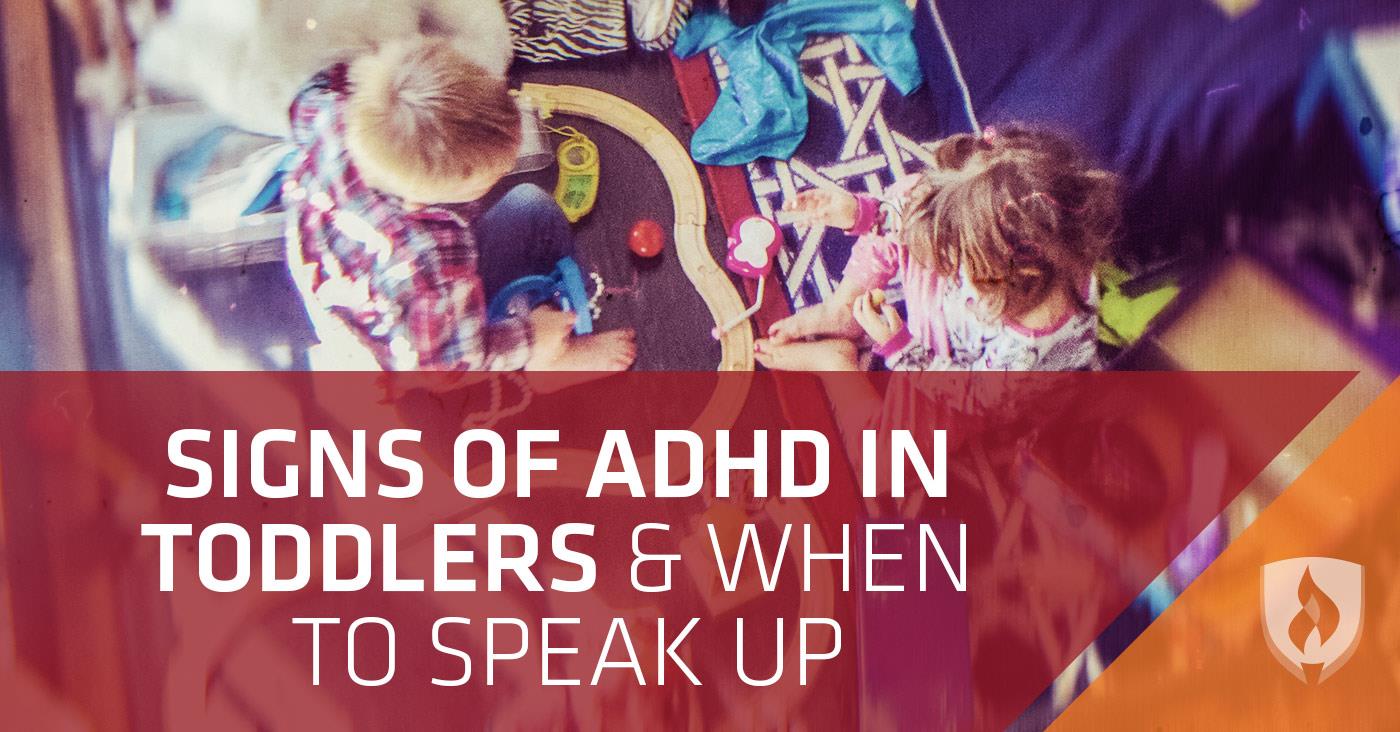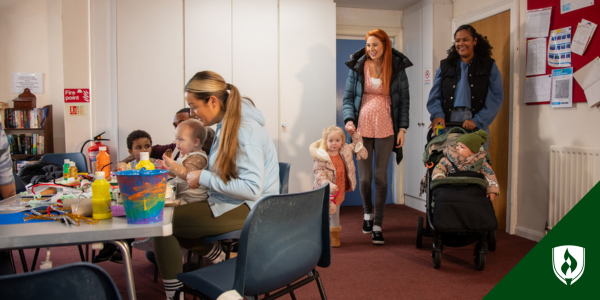Signs of ADHD in Toddlers and When to Speak Up
By Ashley Brooks on 03/28/2017

You’ve spent enough time around young children to know that there’s never a dull moment when a toddler is nearby. Toddlers are growing in their independence and learning new skills daily, which means they careen from one end of the house to the other as they explore their world and test their boundaries.
If you’re lucky, your toddler might sit still for a bedtime story or two. Otherwise, it seems like these little ones are always on the move. But where’s the line between typical toddler fidgets and Attention-Deficit/Hyperactivity Disorder (ADHD)? How can you tell if your child’s behavior is just a part of growing up or a symptom of a larger problem?
“ADHD is an ongoing pattern of attention difficulty, hyperactivity and impulsiveness that is neurologically-based and hereditary,” says Jeannette Washington, M.Ed. and CEO of Bearly Articulating. ADHD can make it difficult for kids to focus on a task or pay attention in the classroom, which can lead to learning challenges down the road.
ADHD in toddlers is a growing concern for parents and teachers who want to do everything they can to help the little ones in their care. To find out more about the signs of ADHD in toddlers and what concerned parents and teachers can do about it, we’ve enlisted the help of some experts to weigh in on the subject.
Signs of ADHD in toddlers
Most parents and childcare providers would probably love to have a checklist that tells them once and for all if a child’s behavior is consistent with ADHD. Unfortunately, it’s not that simple. “ADHD is not a one-size-fits-all diagnosis,” Washington says. “Some toddlers may have every symptom, but others won't.”
Keeping that in mind, these are some common signs of ADHD in toddlers, according to Washington:
- Inability to stay focused
- Difficulty controlling impulses and movements
- Reacting inappropriately to others
- Seeking constant stimulation before finally becoming dazed
- Unable to wait their turn
- Talking excessively
- Struggling to settle down even for short periods of time, such as meals or naps
As you can see, there’s a fine line between an ADHD diagnosis and typical toddler behavior. But it’s important not to jump to conclusions, because a child could exhibit similar actions out of frustration relating to everyday struggles.
What to do if you suspect ADHD
ADHD doesn’t look the same in every child. Parents and teachers are better off making careful observations before rushing to assume ADHD is the problem.
“Parents should converse with their child's teacher to see if their child's behaviors fit the range of behaviors that are typical of kids the same age,” Washington recommends. Parents can also keep a close eye on their child’s behavior and interactions with their peers to take note of anything that seems abnormal.
Teachers or childcare providers who suspect ADHD in a student must be sensitive and respectful when bringing their observations to parents. Teachers should begin an open conversation focused on the challenges and behaviors a child is facing and not on ADHD, specifically.
“Other conditions can result in symptoms similar to ADHD. Some parents do not believe in treating ADHD, and they may avoid an otherwise useful evaluation if the conversation is focused on the diagnosis of ADHD,” says Jared Heathman, MD and child psychiatrist.
Open communication between parents and teachers is key to providing the help a child needs, whether problems are due to ADHD or another issue. “A teacher can start the conversation with parents by inquiring about the child's behaviors at home to see if they mirror those that occur in the classroom,” Washington says.
No matter who starts the conversation about ADHD concerns, it’s important to remember that teachers are not trained medical professionals. They can’t make a formal ADHD diagnosis—but they can assist parents in taking next steps to help their child.
Consulting with a medical professional
The next step for parents is to bring their concerns to a medical professional who can help them assess and evaluate the root of their child’s problem. “The diagnosis of ADHD is made in a clinical setting,” Heathman explains.
Though parents are the ones who need to take this next step with their child, teachers can be a helpful part of the process. A teacher’s notes on classroom behaviors can be vital to medical professionals who need a clear picture of a child’s behavior throughout the day.
“Child psychiatrists find it very helpful for teachers to provide details on provided ADHD rating scales or questionnaires to get a better understanding on what is happening in the classroom,” Heathman says.
Parents have many options when it comes to seeking help for their child. Washington recommends consulting with the child’s pediatrician and requesting a referral to a specialist, such as a child psychiatrist. Schools also often provide resources, such as free educational evaluations.
After the diagnosis
If a child is diagnosed with ADHD, it’s not the end of the world. Heathman notes that the American Academy of Pediatrics doesn’t recognize ADHD as an appropriate diagnosis for children until they are age four or older. There are also no FDA-approved ADHD medications for children younger than three.
Parents can work with their child’s medical professional to develop the proper treatment strategy for their situation. In the meantime, teachers and parents can make changes in the classroom and at home to make life easier on a young child with ADHD.
“Teachers can make slight accommodations or provide informal supports to redirect a student’s attention during lessons,” Washington says. She also recommends that parents schedule a follow-up meeting with the school to determine which services would be most beneficial to the child.
Making careful observations
Now that you know the signs of ADHD in toddlers and what to do about it, you can feel prepared knowing which steps to take if you’re concerned about the toddler in your life.
Keeping an eye on anything that affects your toddler feels only natural to you, but it’s actually very proactive. This is one of many important qualities of a preschool teacher. Find out if you have any others in our article: 9 Signs You Should Be Teaching Preschool.
RELATED ARTICLES:




